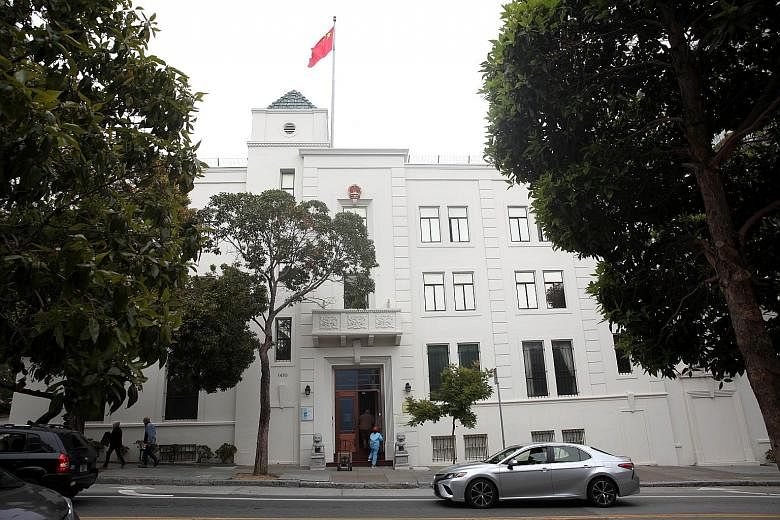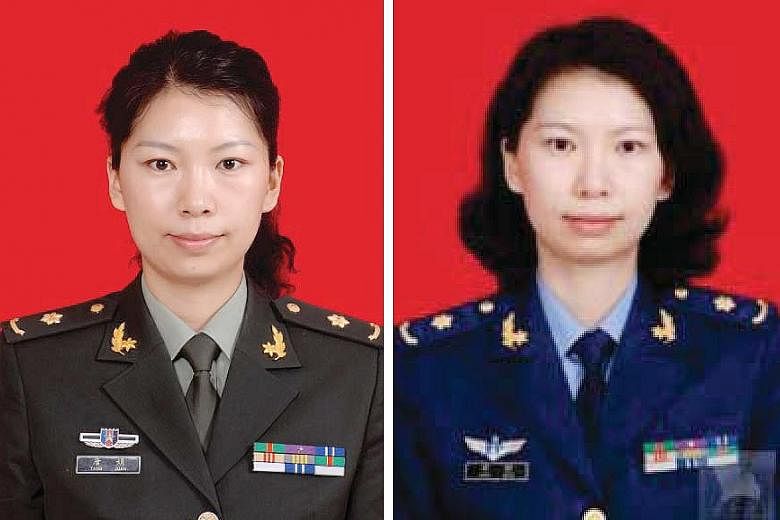LOS ANGELES • A Chinese researcher arrested in California is a military official who should be treated as a spy, denied bail and kept in jail while she awaits trial on visa fraud charges, US prosecutors have said.
As Juan Tang headed back to court yesterday for a hearing on whether she should be released on bail, government lawyers told a federal judge that there is a serious risk she would try to flee with the full backing and resources of the Chinese government.
China has demonstrated "every reason to assist Tang in fleeing the United States and has at its disposal means such as active consular and intelligence services, the ability to issue passports, and state-controlled air transport", prosecutors said in a court filing.
Tang's return to China would bolster its "information collection activities" in the US, they said.
Tang is one of several Chinese scholar visa holders in more than 25 American cities who the Justice Department suspects of having an "undeclared affiliation" with the Chinese military.
Her prosecution has become a flash point of tension between the US and China, which have sparred publicly by closing each other's diplomatic missions in Houston and Chengdu.
Prosecutors' portrayal of the threat Tang poses contrasts starkly with the description by her lawyer in a court filing on Wednesday of overzealous American law enforcement officials monitoring the researcher's retreat to the Chinese consulate in San Francisco for a month, and arresting her after she left the property and got medical treatment.
Tang, 37, is being held in county jail in Sacramento, near where she did cancer research at the University of California at Davis.
A key question has been whether Tang left the consulate on her own or as the result of some agreement between the US and Chinese sides.
Ms Lexi Negin, the public defender representing Tang, said the scholar voluntarily surrendered to law enforcement officials.
Ms Negin on Thursday called the US accusation that the consulate would help her flee "baseless", given that Chinese officials did not seize the chance to get Tang out of the country when they first learnt there was a warrant for her arrest and did not keep her at the consulate, knowing she would be apprehended when she left.
Prosecutors said Tang's false denials when FBI agents interviewed her at her apartment in Davis about her military affiliation and her membership in the Communist Party mirror the efforts of three other Chinese researchers in California and Indiana to cover up their past lives before they were recently charged.
Tang sought shelter at the consulate in San Francisco after the agents interviewed her, according to Ms Negin's filing.
The researcher was in "hysterics" after learning of the warrant for her arrest, leading consulate officials to believe she needed to see a doctor, Ms Negin wrote.
Ms Negin said she thinks American law enforcement officials were watching the building and followed Tang's car to a medical office were she was treated.
The lawyer also said in an e-mail that the details about Tang's arrest came from a prosecutor who was not personally involved in her detention.
The request for Tang's release said her husband is a doctor living with their daughter in China. Her filing says pieces of prosecutors' evidence are "weak and lend themselves to many innocent explanations", including photographs of Tang in military uniform.
"Ms Tang apparently attended a prestigious medical school that is run by the military in China," according to the filing. "That does not mean that she was 'in the military'."
Chinese Foreign Ministry spokesman Wang Wenbin told a daily briefing in Beijing yesterday that the government was "closely following the development of this case and we will, as always, provide consular assistance to the people involved".
BLOOMBERG


